Everybody’s talking about Citizens’ Assemblies
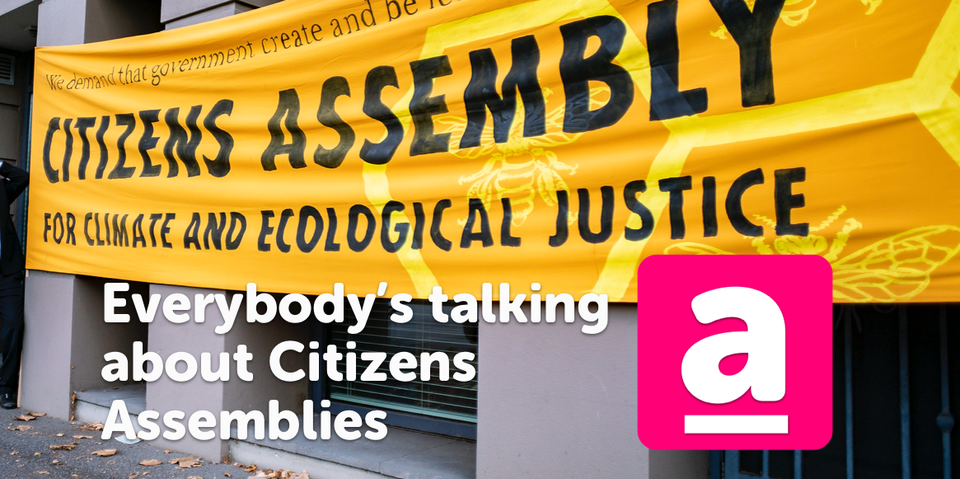
by Jo Woolfall | Parents for Future Stroud
THE RATIONALE FOR a standing Citizens’ Assembly (as opposed to a ‘one-off’ assembly) is the potential that this has to maximise the impact of people power, to shadow existing decision-making structures, and to naturalise collective decision-making into the fabric of our communities.
In particular, our aspiration is that this process will enable us to build resilience and navigate systemic and ecological collapse collaboratively.
It also doesn’t exist in a vacuum; it needs to be part of an interconnected web of parallel deliberative spaces, such as community assemblies.
This is our plan ‘in a nutshell’ – a bottom up (as opposed to top down), representative, standing Citizens’ Assembly, in a claimed/created space (as opposed to being part of an existing political ‘invited’ space), and embedded within a participatory ecosystem.
The design process is underway and will be reviewed by a wider team in mid-April. Everyone will be needed, in whatever ways are possible!
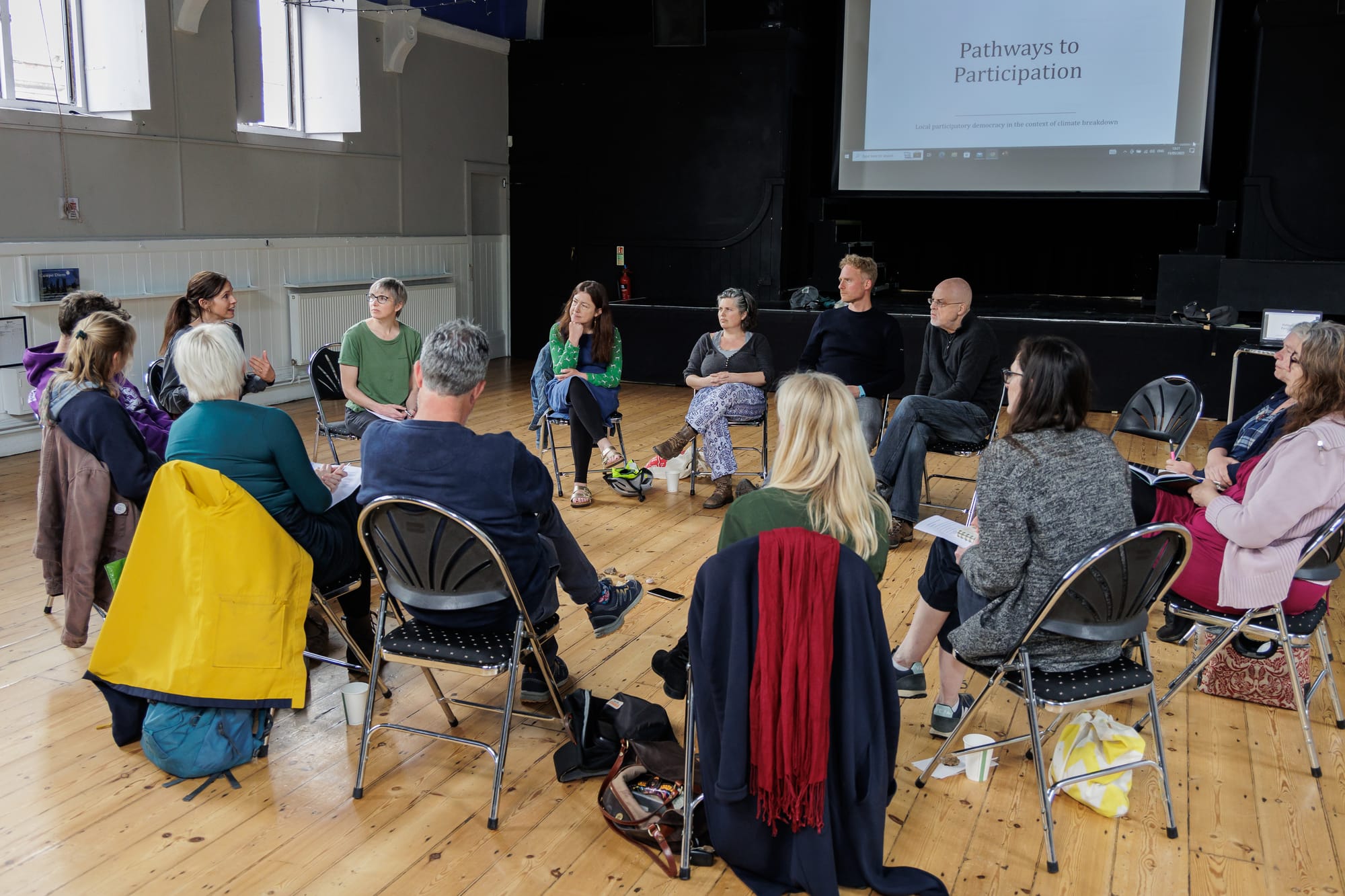
The landscape of activist movements
In the meantime, Just Stop Oil is also pushing for a standing Citizens’ Assembly, at a national level, referring to it as a ‘People’s House’, to shadow the Houses of Parliament. You can read more about it in an article by JSO co-founder Sarah Lunnon, who is based in Stroud, and with whom we are connected.

Lunnon writes:
“The system is going to fail. It cannot recognise, respond or mobilise to face the coming crisis – so we have to change the system. It’s simple logic, but together we can protect our communities and families from the coming storm.
"We will replace today’s failing politics, so action can happen .. In the coming general election, Just Stop Oil will either stand candidates or support independents who sign up to a radical short manifesto.
"A manifesto that centres on deliberative democracy for a new People’s House.
"This will be a standing citizens’ assembly tasked with finding a response to the coming extinction event and the cost-of-living crisis.
"It will be the fruit of leafleting, door knocking, public meetings – and a faith in the British public that party politicians have long abandoned.”
The Humanity Project has similar aspirations to build a House of Citizens, and we are also in dialogue with this team in order to be able to take the opportunity, if appropriate, for our project to support their aspirations and vice versa.
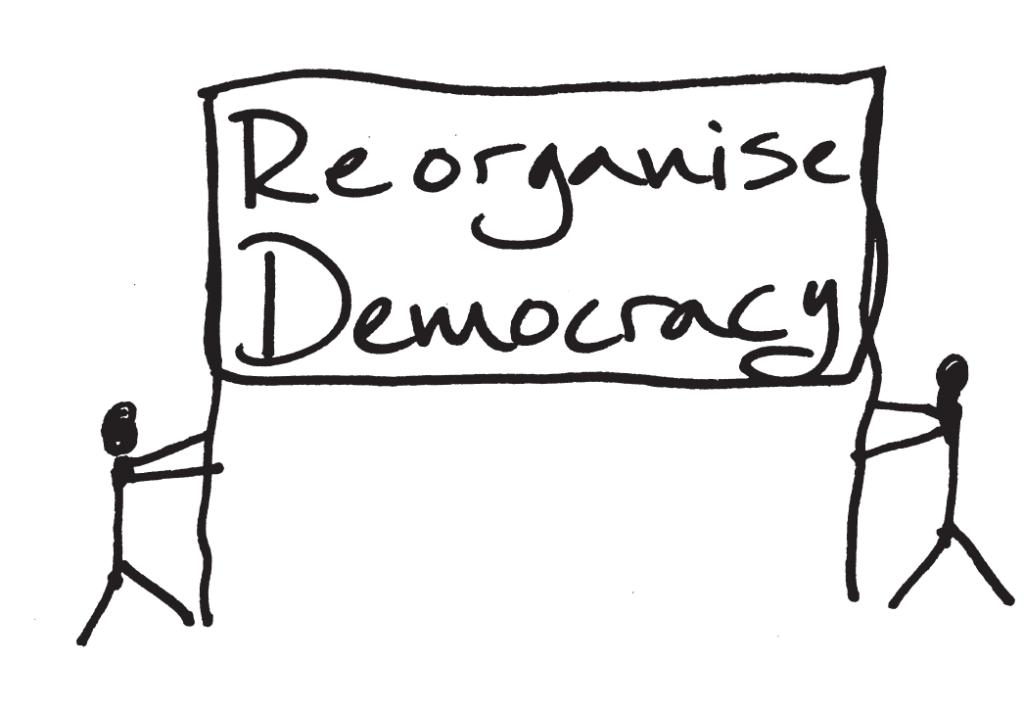
And remember Keir Starmer being showered in glitter last year, as he addressed the annual Labour Conference, by a protestor acting on behalf of People Demand Democracy, an organisation which is also pushing for a standing Citizens’ Assembly.
As the protestor was wrestled to the ground, he shouted: “True democracy is citizen led. Politics needs an update. We demand a people’s house. We are in crisis.”

And of course, Extinction Rebellion (XR) UK placed Citizens’ Assemblies at the heart of its demands to the government in 2018, and this continues to be a central strand of its ongoing work nationally, and through supporting local communities around the UK to hold people’s assemblies.
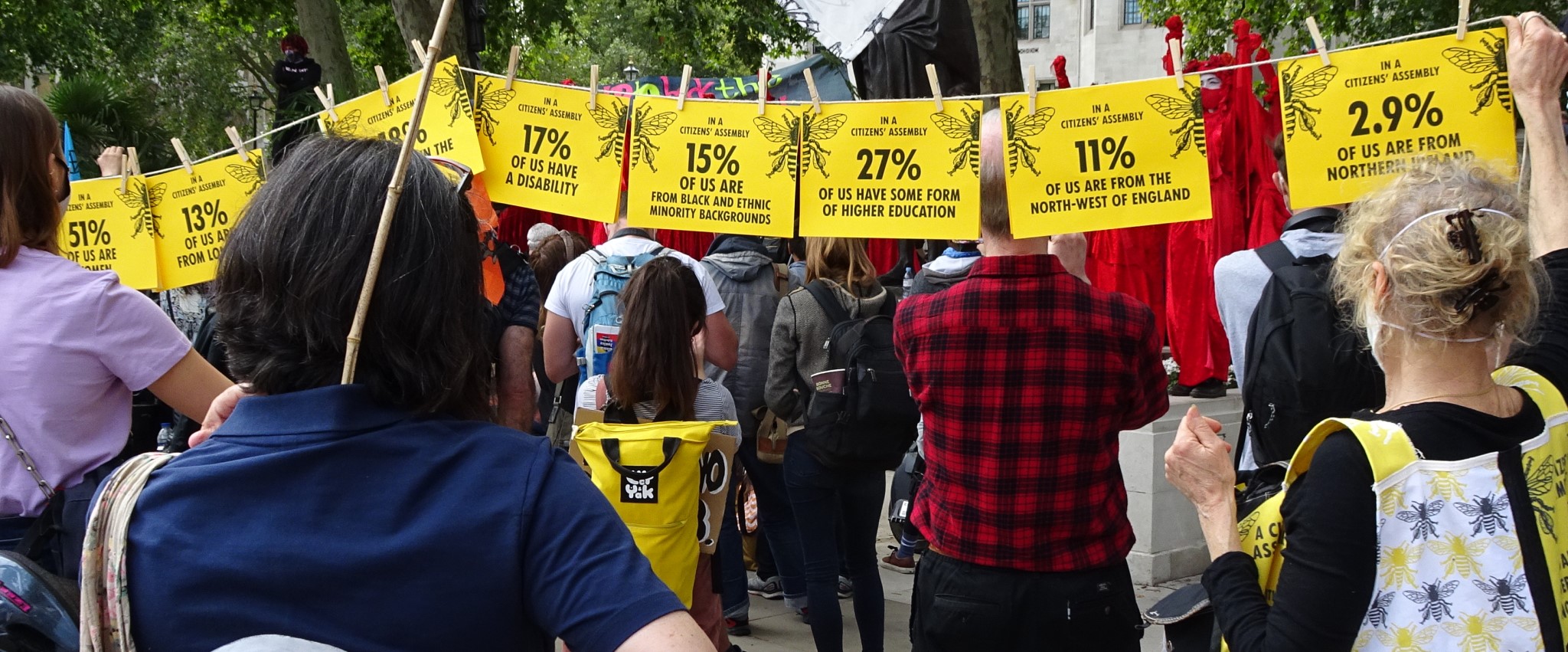
Top down Citizens' Assemblies and deliberative democracy
And then noting that last week, Sue Gray, Keir Starmer’s Chief of Staff, did in fact reveal plans to introduce Citizens’ Assemblies.
Sue Gray said in an interview, “plans were being worked on to involve the public directly in deciding contentious issues such as constitutional reform, devolution and where new houses should be built .. She cited the “transformational” success of citizens’ juries [note: it was actually a Citizens’ Assembly] in Ireland .. and.. acknowledged the plans were likely to face resistance .. “Whitehall will not like this because they have no control.’”
Peter Baeck, director of nesta’s Centre for Collective Intelligence Design wrote this response:
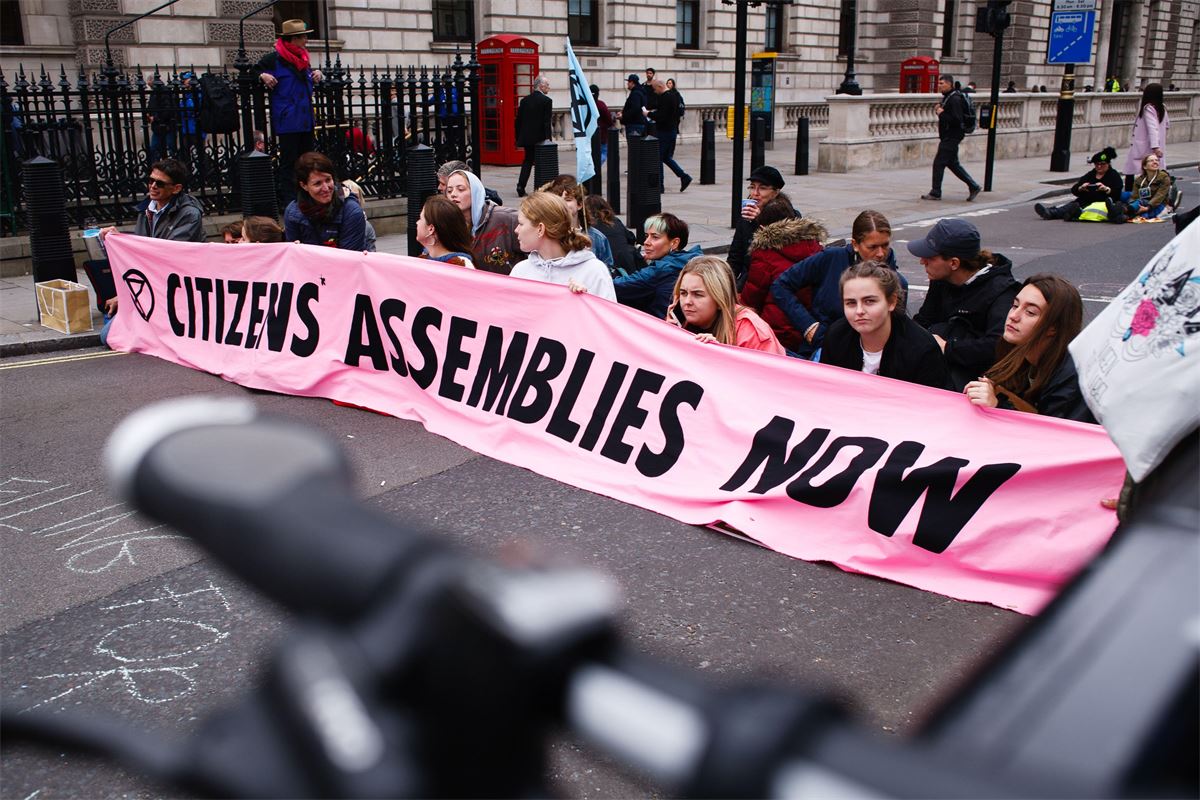
Baeck argued that:
“civil servants should embrace this [lack of control] because devolving policy making in this way is a chance to change the way government works for the better – so it understands problems more accurately, develops better solutions, and more keenly appreciates the trade-offs, consequences and downsides.”
Labour’s plans came in for some criticism from Josh Self, editor of Politics.co.uk, as ringing ‘hollow’, ‘a tell don’t show approach to politics’, with no actual policy in place yet:
“According to The Times report, Labour is in the process of “drawing up plans” — meaning there is no indication currently as to how citizens’ assemblies would operate in practice .. A policy like “citizens’ assemblies” .. is intended to signal “change” while triggering limited consternation in the shadow Treasury”.

In Stroud, our prospective Labour candidate Dr Simon Opher is supportive of deliberative democracy, and we hope that in the event Labour wins the general election later this year, he will play his part in turning Labour’s plans into meaningful policy.
Learnings from Europe, the Global South and the Middle East
THERE ARE ALSO MANY EXAMPLES from other countries who have created standing citizen assemblies which operate like a third chamber. One such example highlighted by Beack is Belgium, where five years ago the Ostbelgien regional government set up a permanent Citizens Council and Citizens’ Assembly.
The agenda is left completely in the hands of participating citizens and politicians have no control over the issues discussed. The assembly has so far covered topics ranging from immigrant integration to housing and healthcare.
Here in Stroud, the radical youth movement the RYSE, consistently highlights the assembly processes that happen at scale and with great frequency, power and impact in many places in the Global South, and seeks to create spaces for ongoing learning and dialogue with indigenous communities engaging with these processes.

An inspiring and sobering piece was shared recently about Rojava, a region in northeast Syria.
For 12 years, millions of people in northeast Syria have been organizing themselves through direct democracy, women’s liberation, ecology and restorative justice.
Whilst going much broader than the primary topic of this piece, it resonates with and informs our aspirations here in Stroud – with deep regret for the suffering these peoples have experienced, humility for the adversity they have overcome, and discomfort that the UK is one of the Western countries supplying the weapons which are now being used against them.
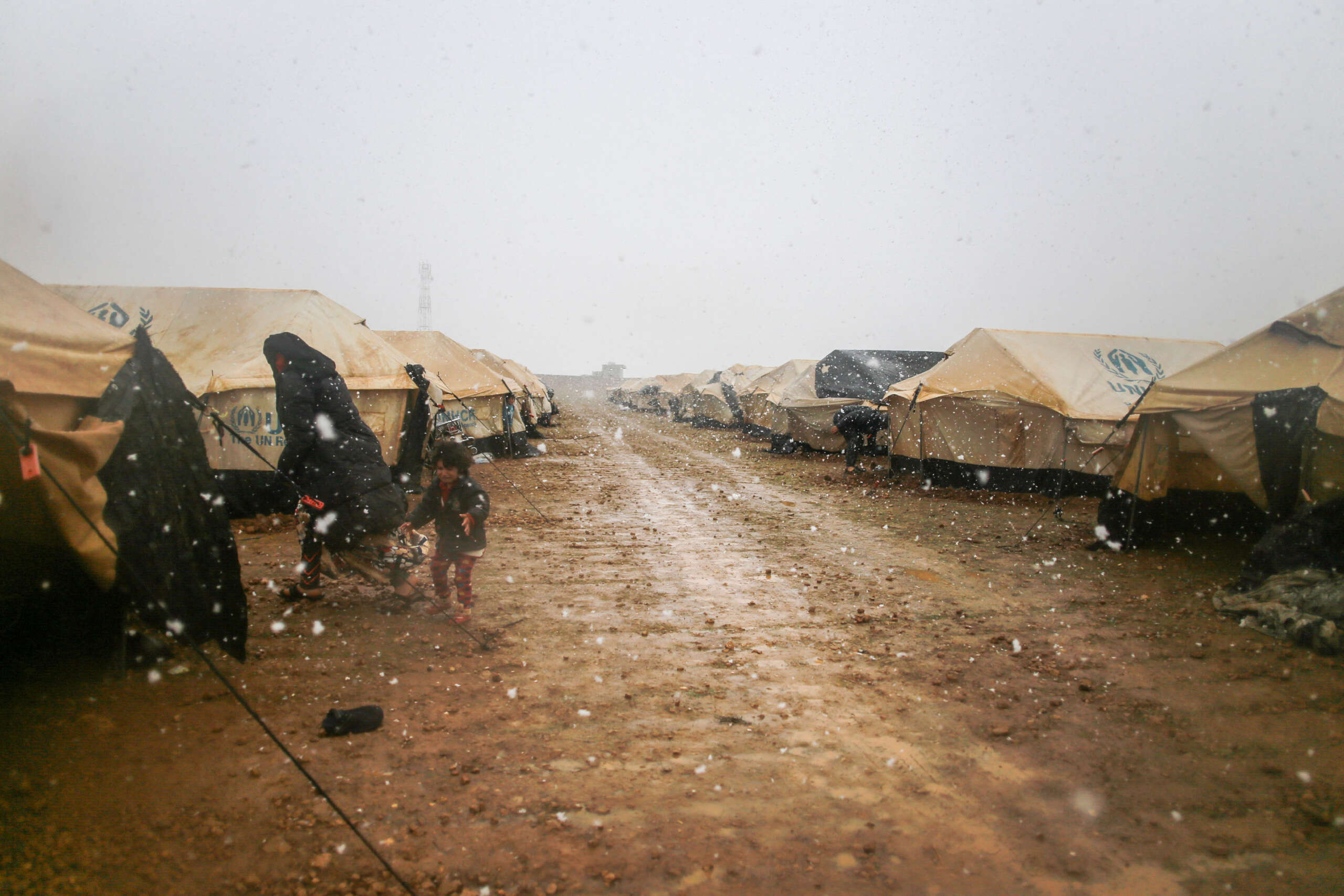
These words from Rojava point the way to the revolution:
“Revolution no longer happens by trying to seize control of existing power structures but by reimagining power itself through restoring community, uplifting women’s leadership, building autonomy and honoring the whole web of life.”
Building civic infrastructure and participatory ecosystems
PETER BAECK ALSO REFERS to the need, as mentioned at the beginning of this piece, for a standing Citizens’ Assembly not to operate in a vacuum but to be part of an interconnected web or participatory ecosystem.
nesta refers to this as ‘going beyond Citizens’ Assemblies’ and calls for a ‘Citizens’ Participation Service’:
“It’s important to understand that no participatory activity works in a vacuum. What happens before and after an assembly, for example, is just as important as the assembly itself.
Who helps frame and set the agenda? Is there a real mandate and accompanying resources? Are there processes to follow through on the proposals and ideas from citizens and join them up with the rest of the policy making process?
A Citizen Participation Service would help ensure that deliberative mechanisms sync with existing decision-making processes and change mechanisms that improve how public services are delivered – with so many to choose from, there is a participatory model for all parts of the policy making process, and there is a public appetite to match.”
These questions (and many others) are central to the processes underway here in Stroud.
Building civic infrastructure will require the best of our collective and collaborative thinking, planning, learning and skill sets.
We are focused at the local level, creating a local roadmap which looks like it will have similarity to the processes JSO, The Humanity Project and People Demand Democracy are seeking to create nationally. We aspire that our work (along with others, such as Cooperation Hull) may end up forming a blueprint of bottom-up, claimed democratic processes which could be useful for other local regions, and feeding into national processes.

We will stay connected with the national political picture and activist movements; not dependent on political will to build the structures we want to see in Stroud, and seeking to collaborate with other quality projects and processes to support this emergence, locally, nationally and globally.
As Beack concludes:
“Recognising citizen’s rights to participate in the decision making that will shape their lives, neighbourhoods and futures – beyond simply deciding which person will be their MP, mayor or councillor – is long overdue in the UK.
As the challenges ahead get increasingly complex with difficult trade-offs and profound changes – from climate change to social care funding – deliberative democracy will allow us to harness the collective intelligence of millions of citizens to find a way through, not just depend on the skills and abilities of a handful of politicians and civil servants.
Closing with this poignant clarity from the front lines of Rojava: ‘.. creating, supporting and amplifying decentralized autonomous communities is the critical work for our times.’
Jo Woolfall writes on behalf of Parents for Future Stroud
You can find out more about the group and get involved with their Collapse-Aware Leadership campaign here













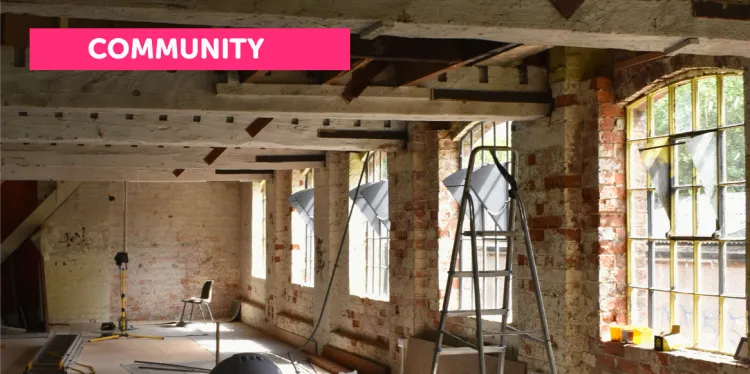
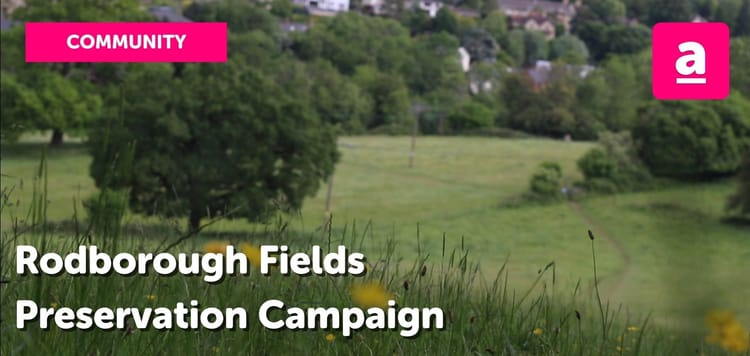

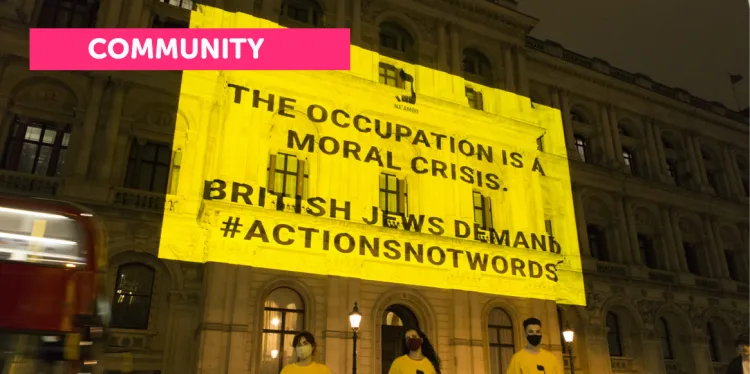
Member discussion